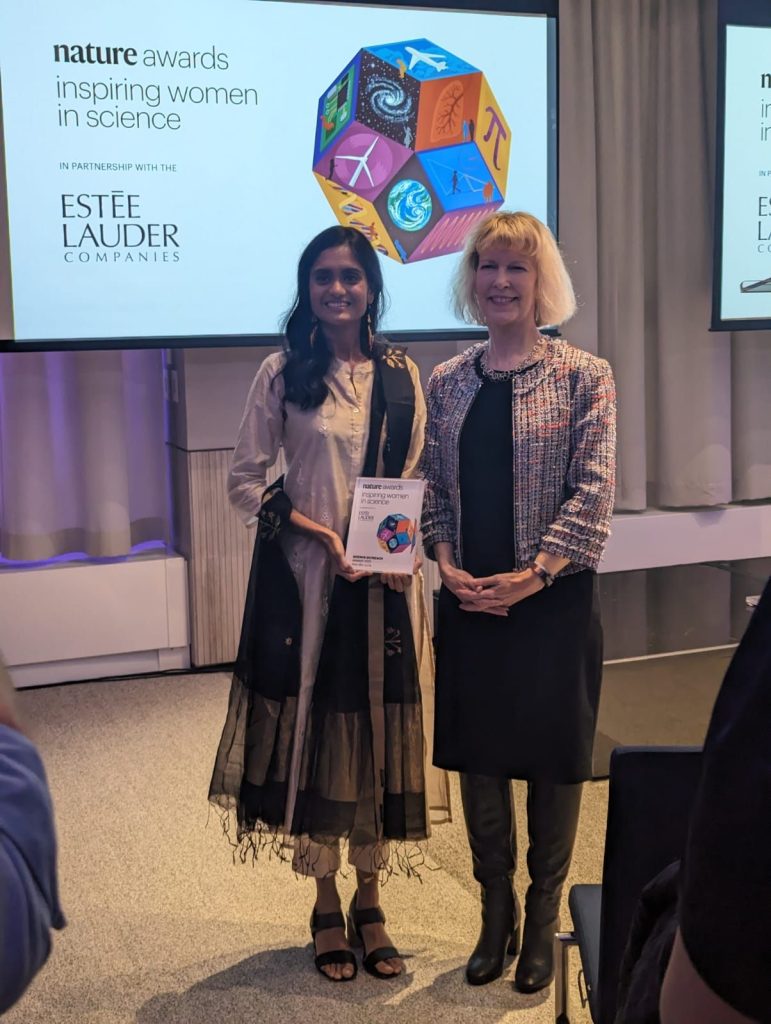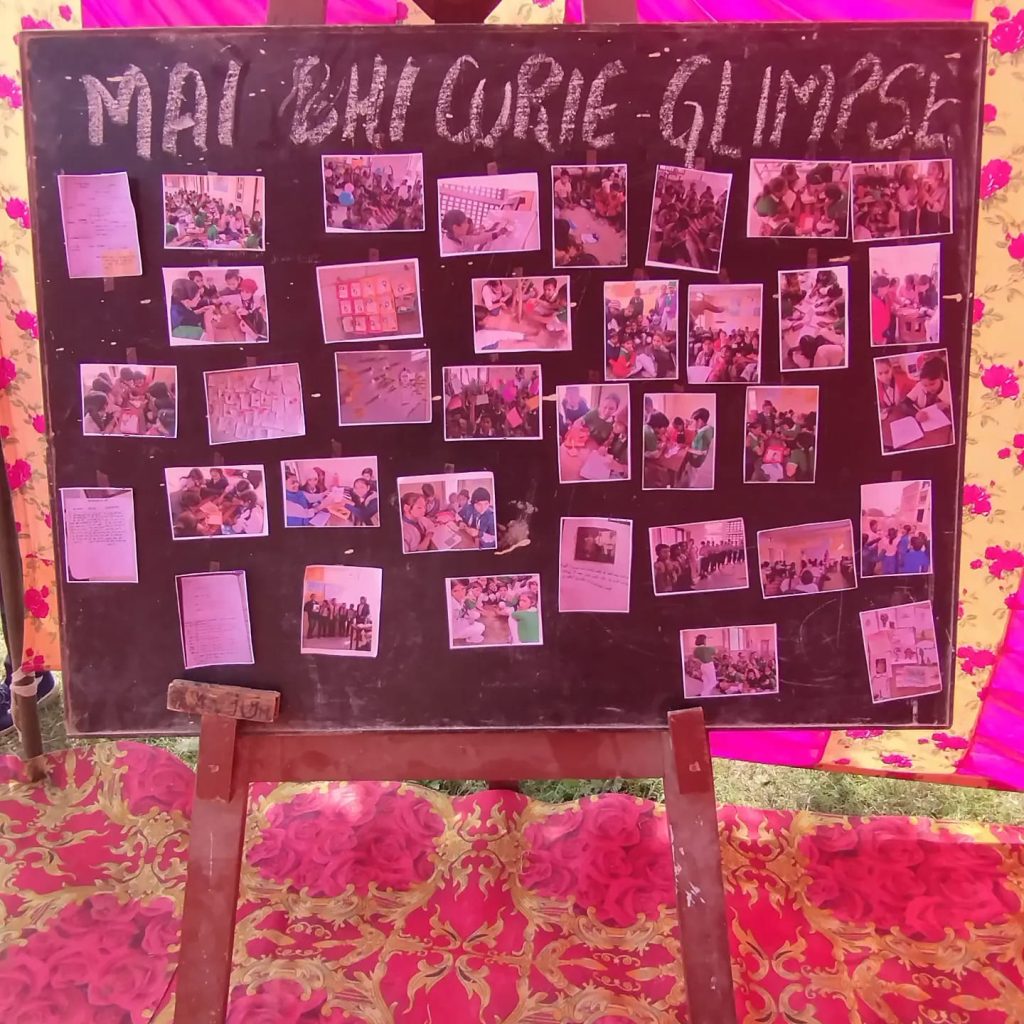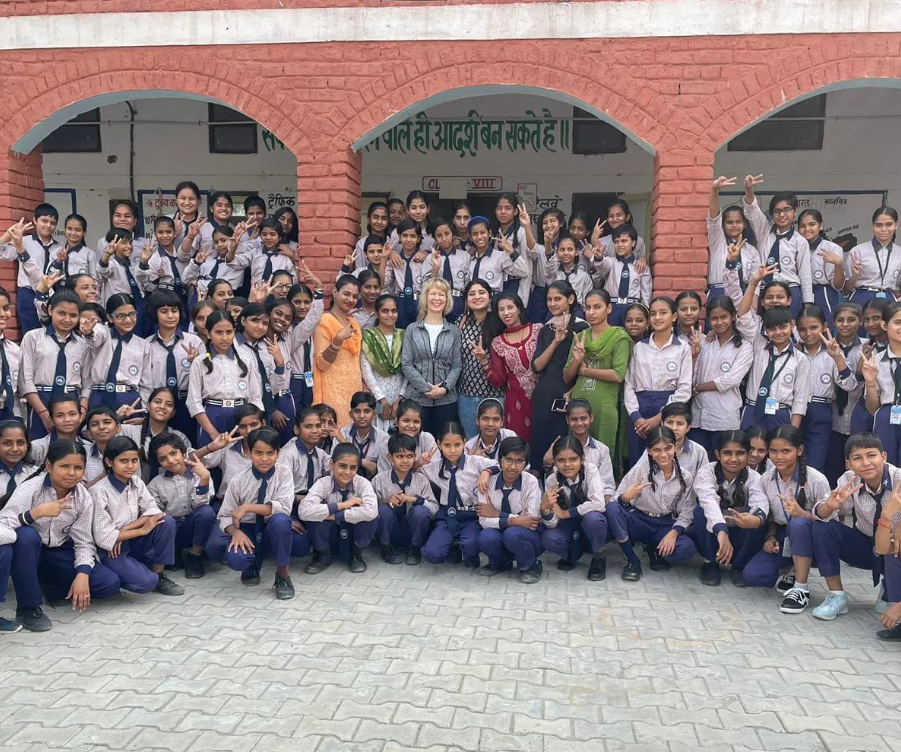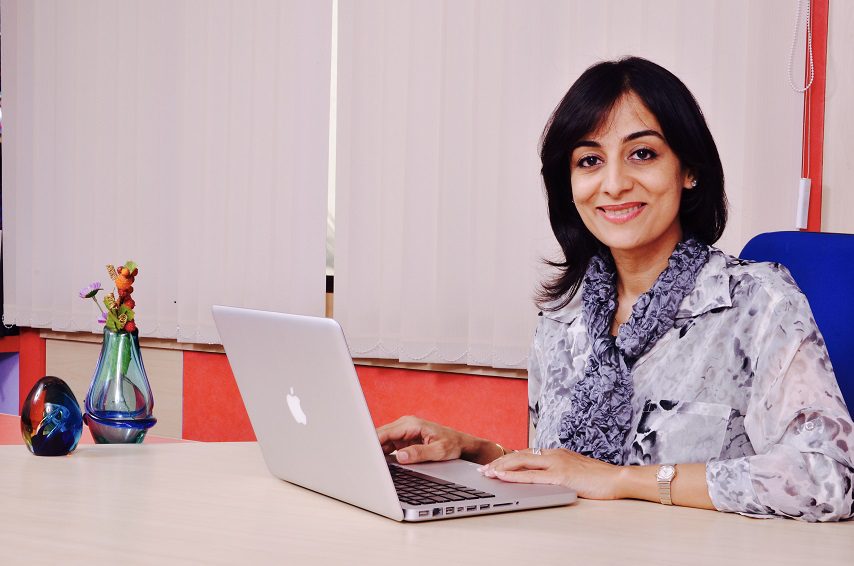(May 20, 2024) “I believe we are the only ones from India to have ever received this honour and so we’ll make sure that we kind of rise up to it. Our plan is to make our advocacy stronger around STEM and the under representation of women in STEM, not just in India but also globally,” said Ananya Tiwari, soon after receiving the 2023 Inspiring Women in Science Award by Nature Portfolio and The Estée Lauder Companies Inc – which saw nominations spanning 45 countries across six continents. The award ceremony was held at New York in presence of the UN under-secretary general for global communications, Melissa Fleming.
This is one of many achievements for Ananya, who is an assistant professor at the Texas A&M University and the founder of the non profit, SwaTaleem. The foundation focuses on increasing STEM participation and aiding retention of adolescent rural girls in STEM education. In 2022, Google named Ananya as one of seven rising changemakers and a ‘Leader to Watch’.

Ananya shared the 2023 Nature Inspiring Women in Science Award with Dr. Hortense LE FERRAND
“One of the things that we want to do very strongly is to take this programme to as many girls as possible and so we are of course expanding in India. We are also very interested in collaborating with different entities across the world and are looking at a global expansion,” said Ananya.
SwaTaleem
“Over 53 million Girls between the ages of 12 to 18, many of whom are first- generation learners, hail from low socioeconomic backgrounds, rural and tribal areas. As of 2015, their school dropout rates are on the rise and over 13 million have been pushed into child marriages. SwaTaleem helps break this cycle of oppression and empowers these young Girls of tomorrow with the necessary skills and long-term support,” reads the SwaTaleem website. The initiative is running for the past six years in India.
SwaTaleem collaborates with Kasturba Gandhi Balika Vidyalaya (KGBV) school girls their families, educators, and community women. These residential schools meant for the poorest of the poor were established by the government of India to provide quality education to girls from underprivileged communities. SwaTaleem has been working with 31 KGBVs in Delhi and Haryana – the state with one of the lowest literacy rates of girls.
The SwaTaleem empowerment story
Ananya Tiwari adopted the approach of empowering KGBV teachers and local women to support young girls by forming school clusters. Through the use of IVRS technology, SwaTaleem enables girls, parents, and teachers to participate in the development of life skills content collaboratively. This interactive engagement equips young girls to learn life skills easily, feel empowered and build aspirations.
SwaTaleem also works towards improving the skillsets of skill providers and educators in the villages. “Some of the best days in SwaTaleem are when the team members across villages and districts come together to learn and grow, and find new ways to work with girls, teachers, parents and education system’s officials,” the Global Indian said.
The foundation conducts Internal Team Readiness Workshops for all the field team members, including Cluster Leads, Associate Cluster Leads, and Field Coordinators. The primary aim for these workshops is to establish strong connections among team members, enhance unity, encourage reflection on experiences and lessons learned from various field projects, prepare for upcoming interventions in the coming months, and review the annual calendar.
Since most field team members are women, when young girls see so many women facilitating education to them, they get empowered as they have grown up in environments where they have not seen women working.
Ananya Tiwari
Mai Bhi Curie
The foundation’s programme ‘Mai Bhi Curie’ which translates to ‘I can also be Curie’ in Hindi,” is named after Nobel Prize winner Marie Curie, who conducted pioneering research on radioactivity. This programme has played a big role in making SwaTaleem earn international awards and recognitions. The programme integrates science, gender, and life skills curricula for young girls. These girls often belong to first-generation learner families, marginalized castes, religious minorities, and face high rates of high school dropout and early marriage.
They face a number of barriers in terms of not just completing their schooling but also choosing science. What is interesting is that we recruit local village women to get trained and do the sessions with the girls in the schools.
Ananya Tiwari
After the end of the academic session every year, the girls get to display their scientific projects to the villagers including their parents, family and the government officials at a science fair. This initiative has facilitated scientific knowledge and is playing a role in changing cultural norms, ultimately aiding in the retention of more young girls in STEM fields.

Glimpse of the Main Bhi Curie initiatives
The impact
SwaTaleem has impacted 250,000 girls in Delhi and Haryana. The foundation not only observes but also quantifies the changes in behaviour and impact, such as improvements in self-esteem, confidence, and assertive communication levels. Ananya emphasizes the profound connection between these changes and scientific knowledge.
“When a girl feels proficient in subjects or areas typically considered difficult by society, she gains the ability to advocate for herself within her family. Numerous studies, including internal research conducted by the foundation, highlight a strong correlation between these factors,” she explains. Along with the evidence-based data, the foundation boasts of anecdotal data of girls that highlight how SwaTaleem has helped navigate their lives in a better direction.
A fun fact is that the schools we work with are nearly two decades old but the girls for the very first time after participating in our programme worked on any science project and submitted in government competitions.
Ananya Tiwari
“These competitions were first held at the block level where they competed with boys and won,” Ananya shares adding. “Their wins have been across gender, across cast, across class, and across the rural urban divide at the block levels, after which their projects went up to the district level and that has been a historical moment for us, something that we’ve taken huge pride in,” Ananya mentions

SwaTaleem Girls
The joy of giving back
Ananya gives full credit to her team for the huge impact that SwaTaleem Foundation has hade. The Texas-based educationist believes that had it not been for them, coming so far would have been impossible.
I have grown up in India and I was very fortunate to be able to go to school, to be able to study. I don’t come from a very wealthy family but I always had food on table and my parents took really good care of me, so I think it’s very important for me as a person to give back and that is why girls education is extremely important to me something that I have been involved with not just through SwaTaleem but also my own research areas here in the US.
Ananya Tiwari
Ananya has studied on numerous scholarships throughout her educational journey. She earned the Margaret McNamara Education Grant (MMEG) to support her studies in the US. MMEG is a nonprofit, public charity founded in 1981 that awards education grants to exceptional women from developing countries.
After completing a BSc from St Stephen’s College, Delhi, Ananya pursued her MA in psychology from Kanpur and graduated as a gold medallist. She did a postgraduate diploma course in liberal studies from Ashoka University on a Russel Mehta Scholarship and earned the Outstanding ELM Award. Following that, Ananya went on to pursue her MS and PhD in educational psychology from the University of Illinois Urbana-Champaign, where she was the recipient of the outstanding doctoral medallion.
View this post on Instagram
- Follow Ananya Tiwari on LinkedIn
- Follow SwaTaleem on Facebook, YouTube, Instagram, Linkedin and its website




